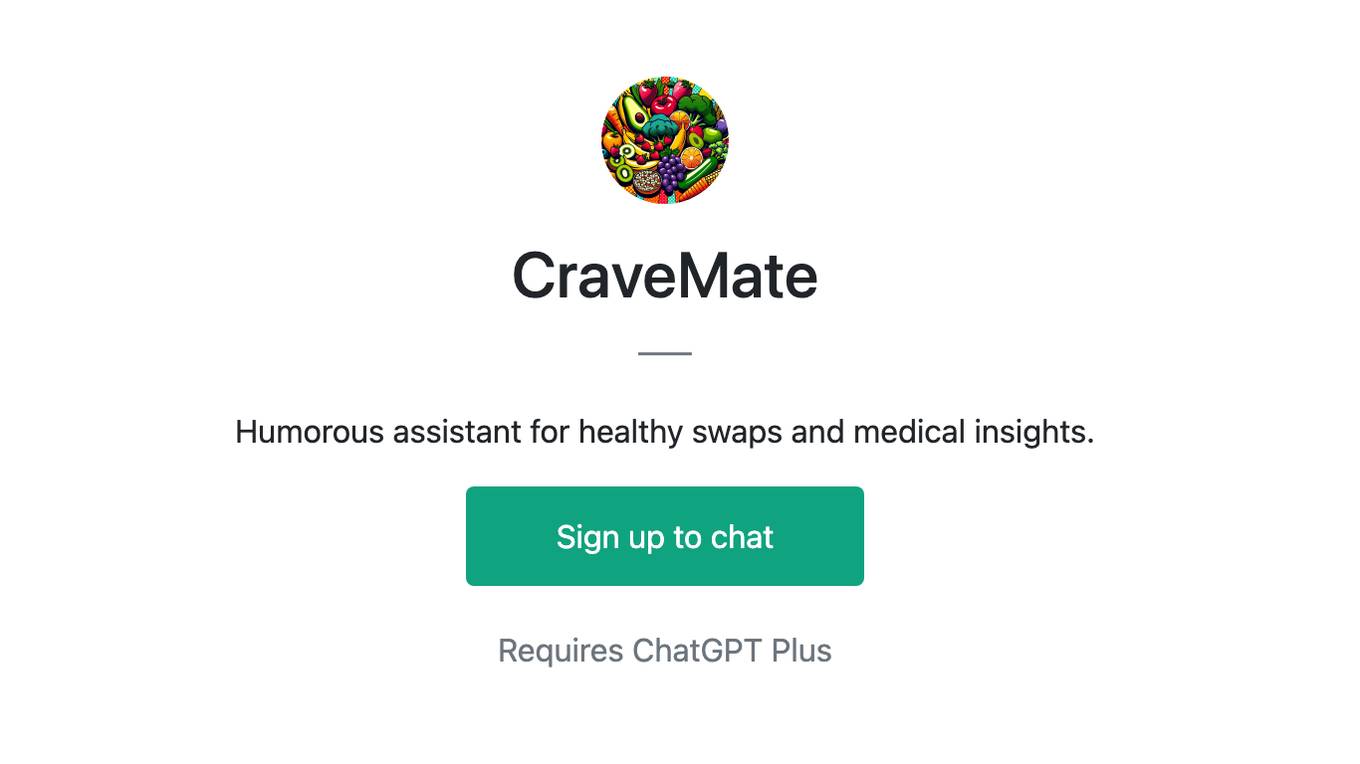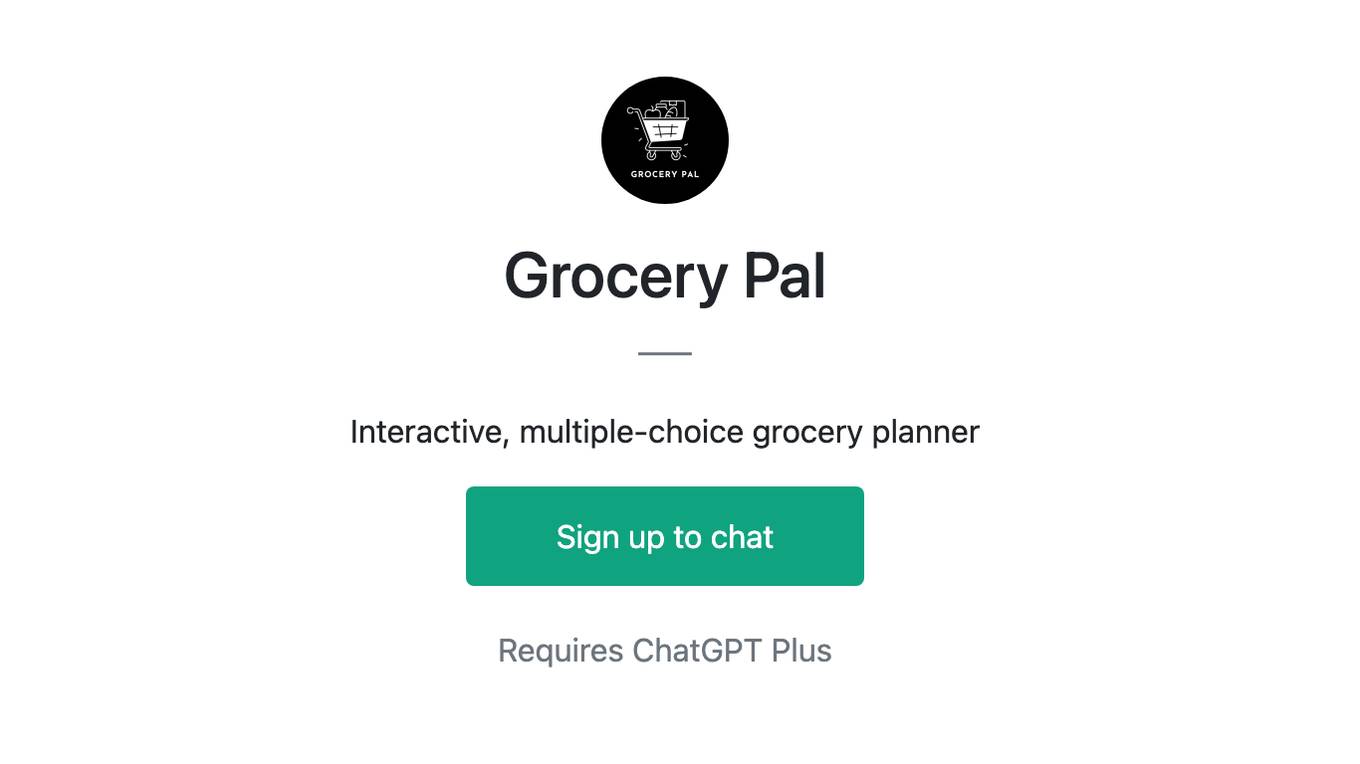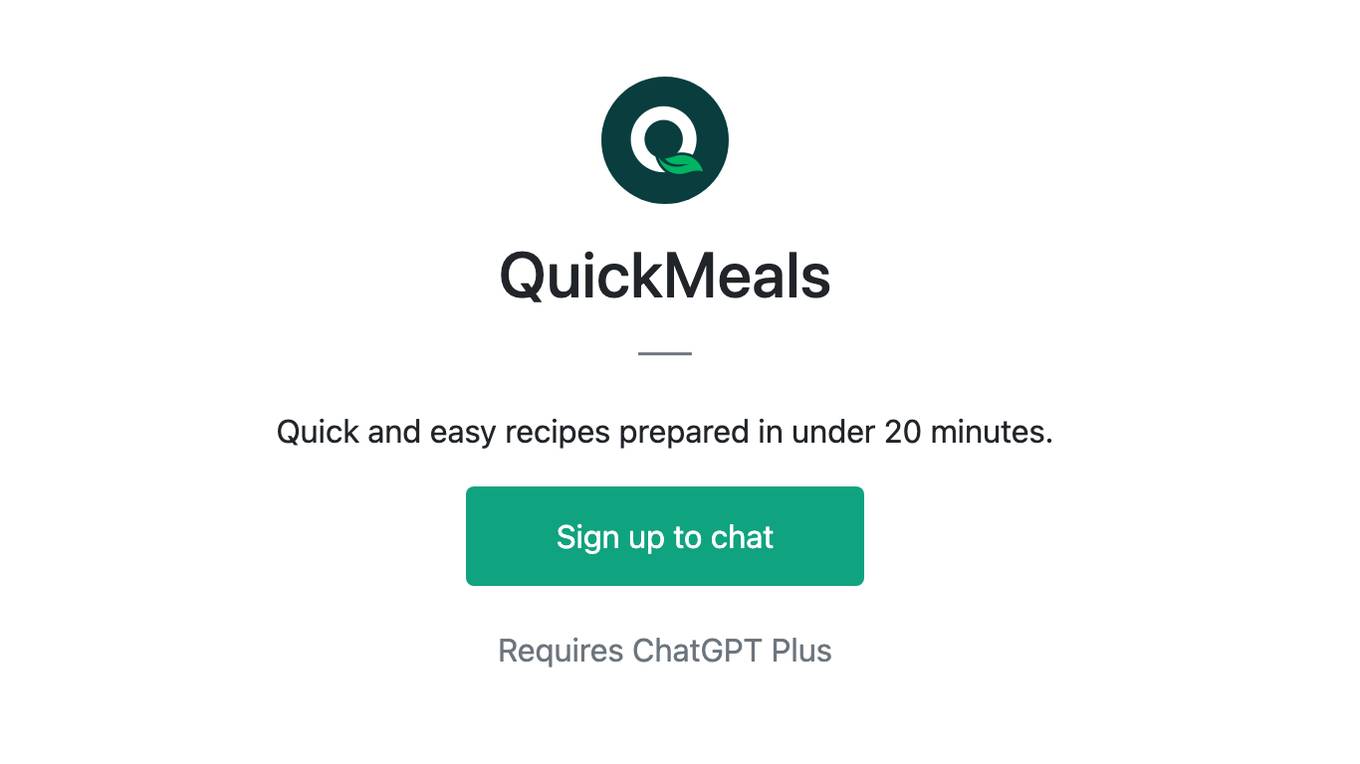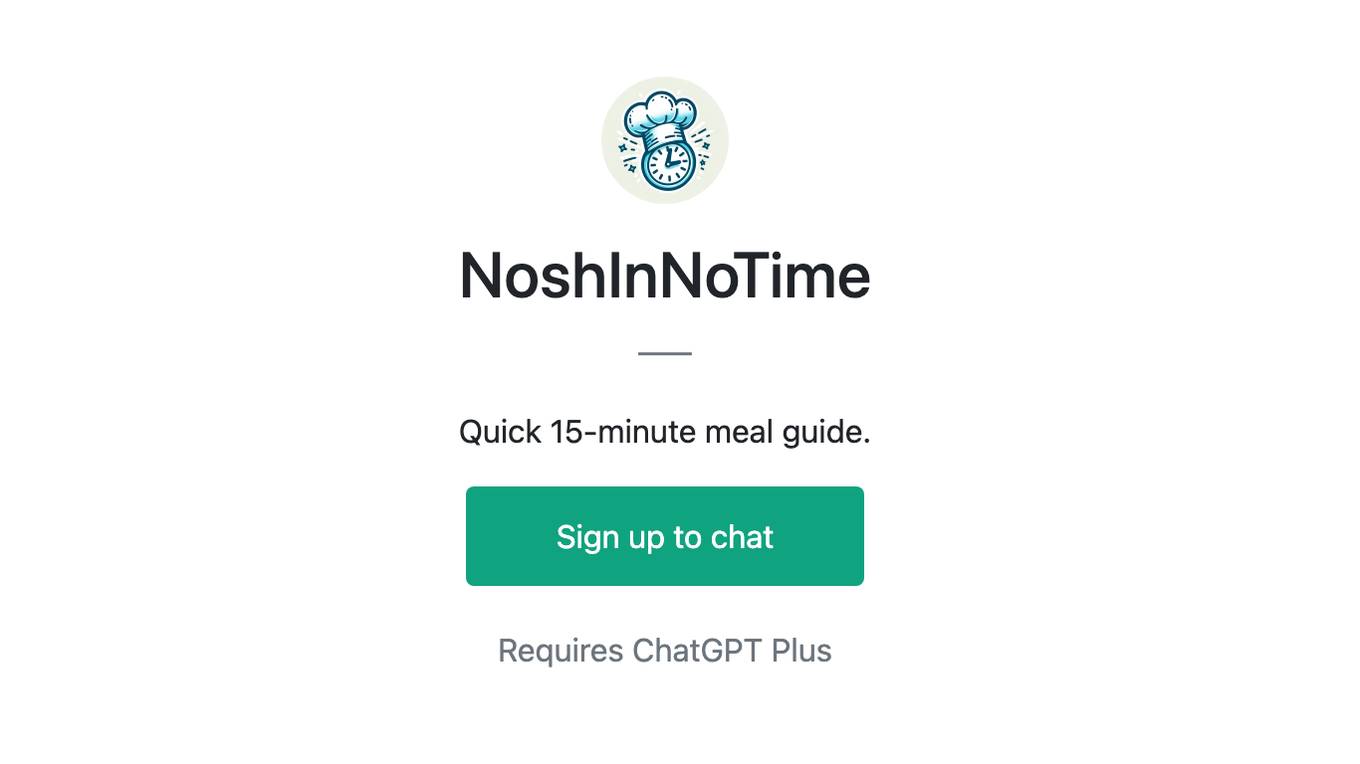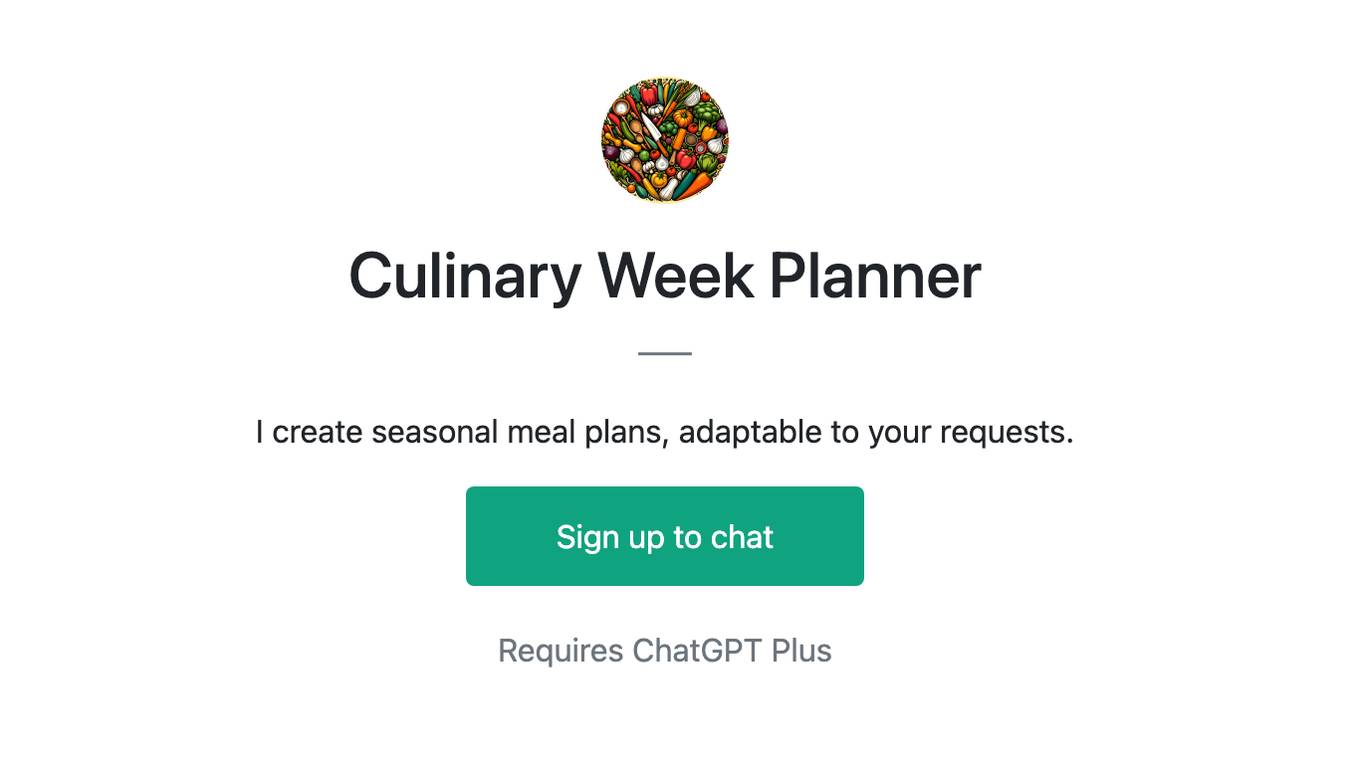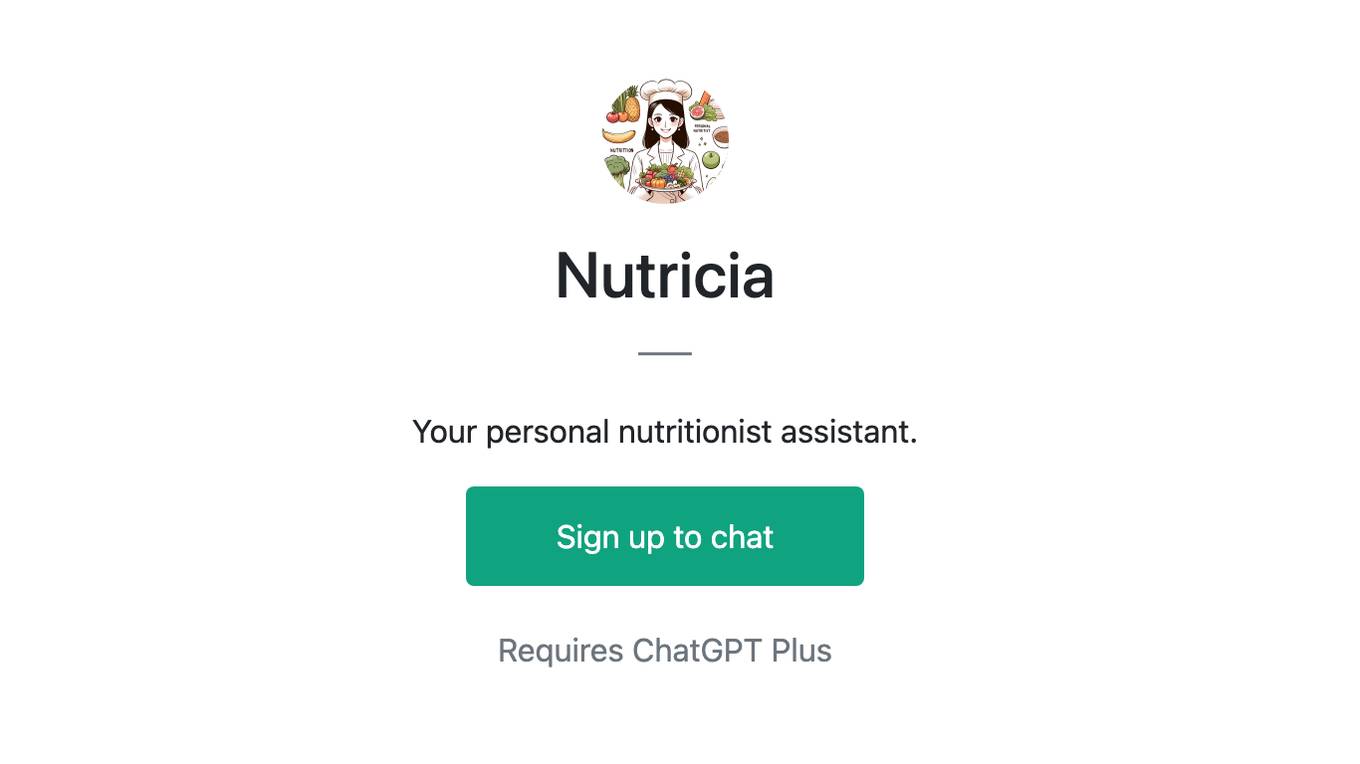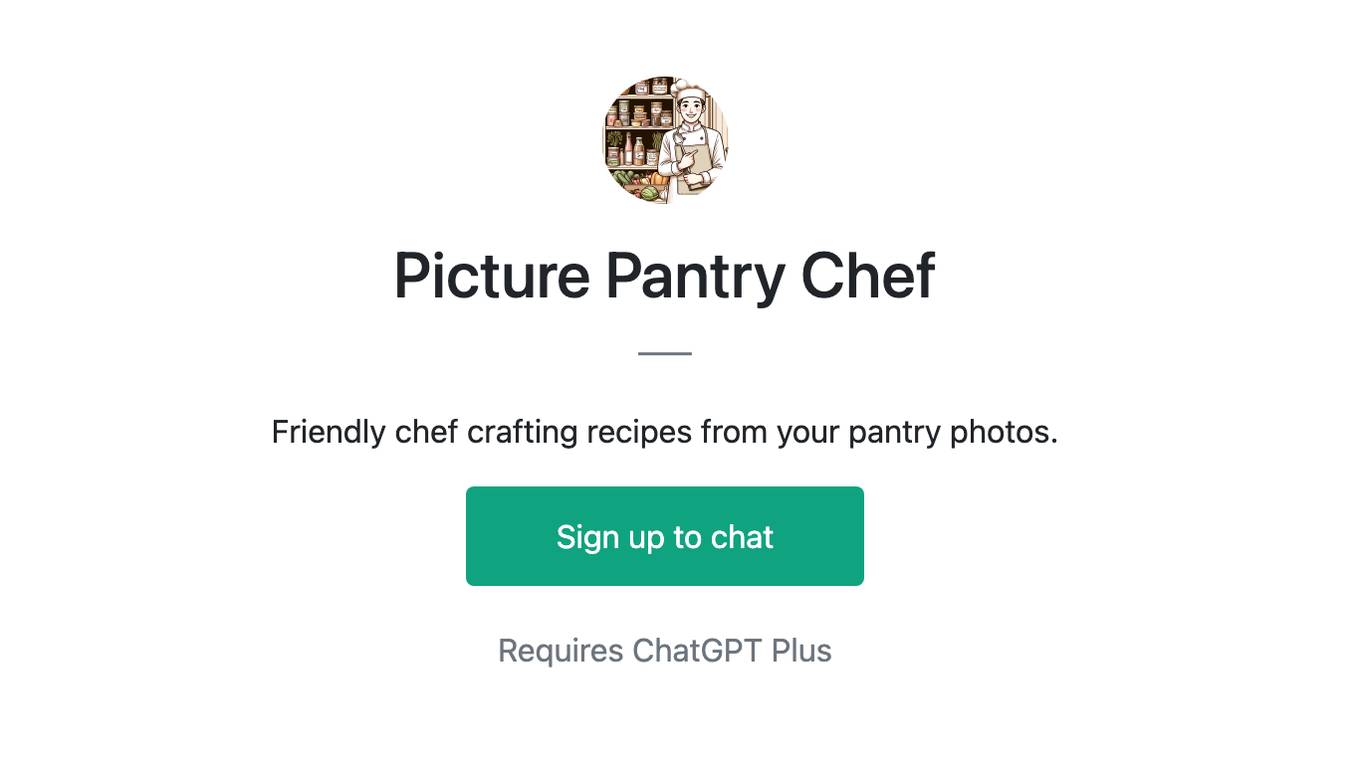Best AI tools for< Eat Healthy >
10 - AI tool Sites
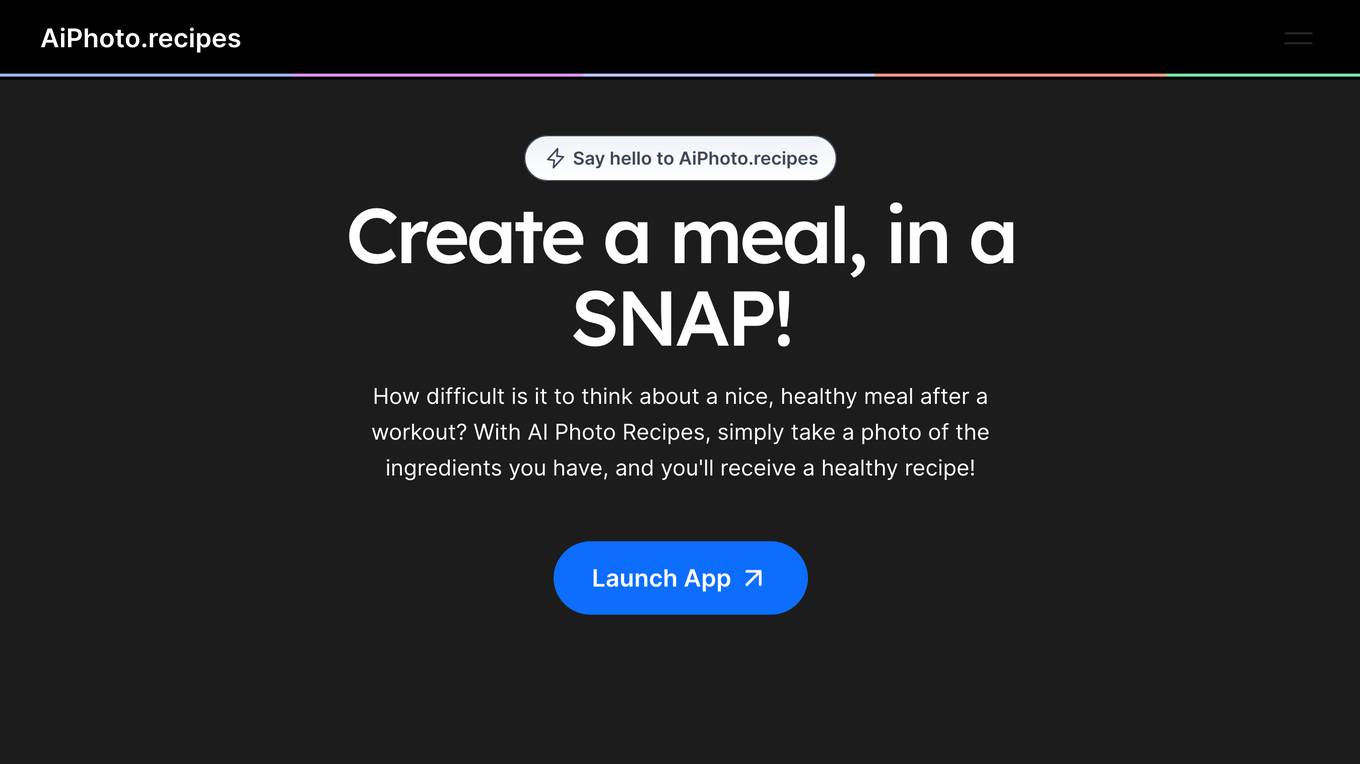
AiPhoto.recipes
AiPhoto.recipes is a web application that helps users create healthy meals using the ingredients they have on hand. Users simply take a photo of their ingredients and the app will provide them with three high-protein recipes that they can prepare. The app is integrated with Telegram, so users can access it without having to download any additional software. AiPhoto.recipes is a great tool for busy people who want to eat healthy meals without having to spend a lot of time planning and shopping.
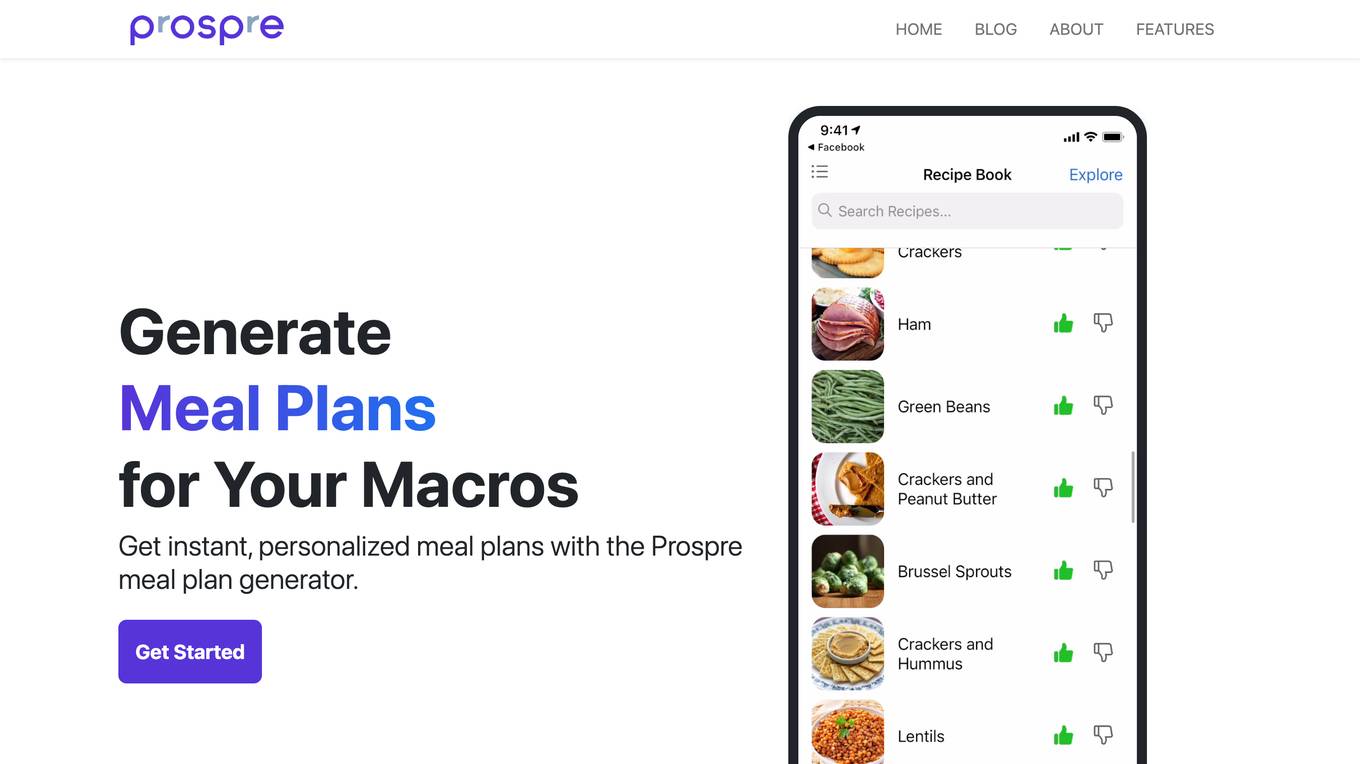
Prospre
Prospre is a meal planning app that helps users create personalized meal plans based on their calorie and macro goals. The app also includes a macro tracker, a recipe database, and a grocery list generator. Prospre is designed to make it easy for users to eat healthy and reach their fitness goals.
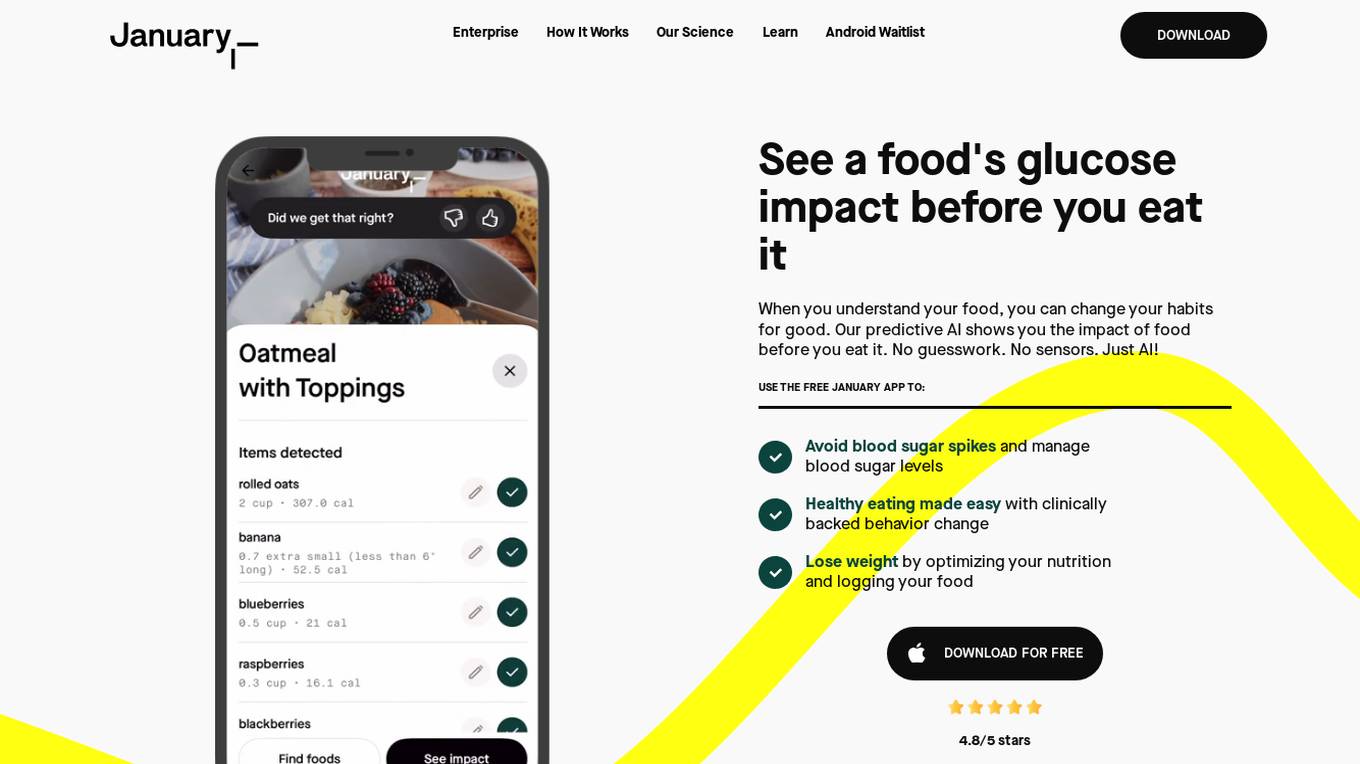
January AI
January AI is a free health app that utilizes predictive AI technology to help users monitor their blood sugar levels and make informed decisions about their nutrition. The app provides real-time insights on the glucose impact of various foods, offers nutrition facts, and suggests healthier alternatives. Founded by Dr. Michael Snyder and Noosheen Hashemi, January AI combines metabolic science with groundbreaking AI to empower users to optimize their nutrition and manage their blood sugar levels effectively.
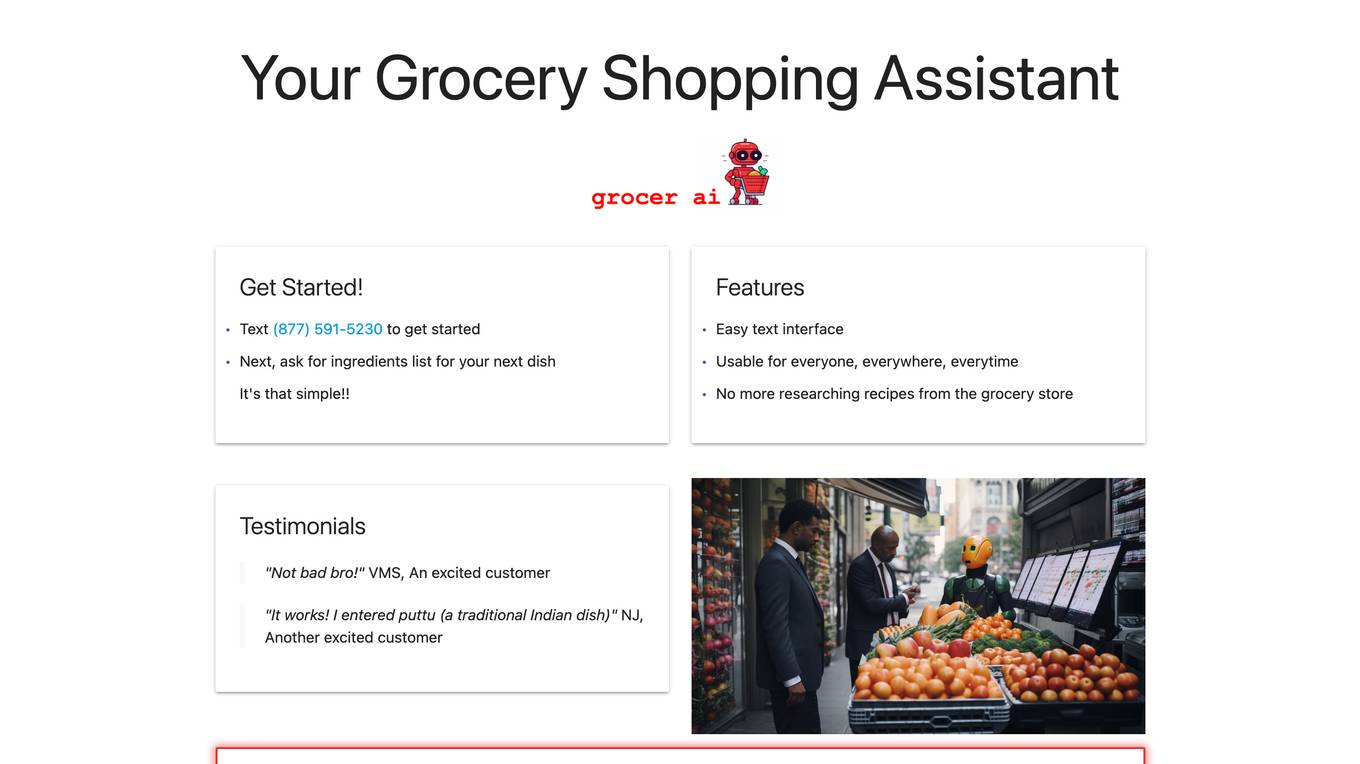
Grocer AI
Grocer AI is a grocery shopping assistant that uses artificial intelligence to help users find recipes, create shopping lists, and set dietary goals. The app is easy to use and can be accessed via text message or through the website. Grocer AI is a valuable tool for anyone who wants to save time and money on their grocery shopping. Grocer AI offers a variety of features that make it a great choice for grocery shoppers. These features include: * Easy text interface: Grocer AI can be used via text message, making it easy to use for everyone, everywhere, everytime. * Usable for everyone: Grocer AI is designed to be used by people of all ages and abilities. * No more researching recipes from the grocery store: Grocer AI provides users with a variety of recipes to choose from, eliminating the need to research recipes from the grocery store. Grocer AI also offers a number of advantages over other grocery shopping apps. These advantages include: * Time-saving: Grocer AI can save users time by helping them find recipes and create shopping lists. * Money-saving: Grocer AI can help users save money by providing them with coupons and discounts. * Healthy eating: Grocer AI can help users eat healthier by providing them with recipes that meet their dietary goals. While Grocer AI is a great tool for grocery shoppers, it does have some disadvantages. These disadvantages include: * Limited selection of recipes: Grocer AI does not offer a wide variety of recipes to choose from. * Not all stores are supported: Grocer AI does not support all grocery stores. * Can be buggy: Grocer AI can sometimes be buggy, which can be frustrating for users. Overall, Grocer AI is a valuable tool for grocery shoppers. The app is easy to use, offers a variety of features, and can save users time and money. However, Grocer AI does have some disadvantages that users should be aware of before using the app. Here are some frequently asked questions about Grocer AI: * Q: How much does Grocer AI cost? * A: Grocer AI is free to use. * Q: What stores does Grocer AI support? * A: Grocer AI supports a variety of grocery stores, including Walmart, Kroger, and Target. * Q: How do I use Grocer AI? * A: To use Grocer AI, simply text (877) 591-5230 to get started.
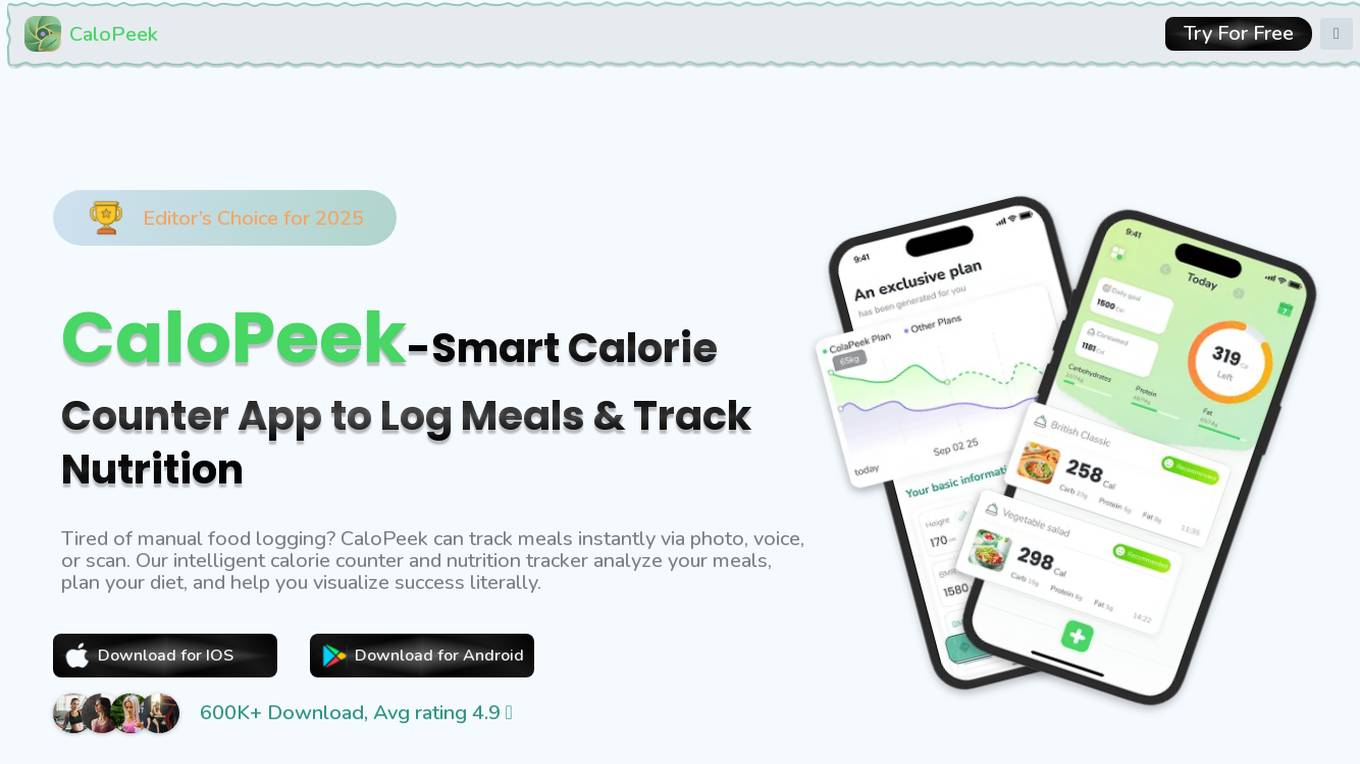
CaloPeek
CaloPeek is a smart calorie counter and nutrition tracker application that utilizes AI technology to help users track their meals, count calories, and monitor their nutritional intake. The app offers features such as photo-based logging, voice logging, barcode scanning, manual entry, advanced nutrition analysis, personalized meal plans, and daily recommendations. Users can receive real-time AI feedback, visualize their future self based on their current diet, and seamlessly integrate with health apps like Apple Health and Google Fit. CaloPeek provides comprehensive progress tracking and reports, making it a powerful tool for holistic health management.

FoodiePrep
FoodiePrep is an AI-powered application that offers personalized recipes and meal planning solutions. Users can enjoy tailored recipe suggestions based on their preferences and dietary needs, as well as efficient meal planning tools. The platform aims to revolutionize the way users approach cooking by providing diverse cuisine options, health-conscious choices, and a virtual culinary assistant named Chef Foodie. With features like end-to-end meal planning, recipe generation, meal planner, smart shopping lists, and ingredient management, FoodiePrep caters to individuals looking to save time, eat healthier, and reduce food waste.
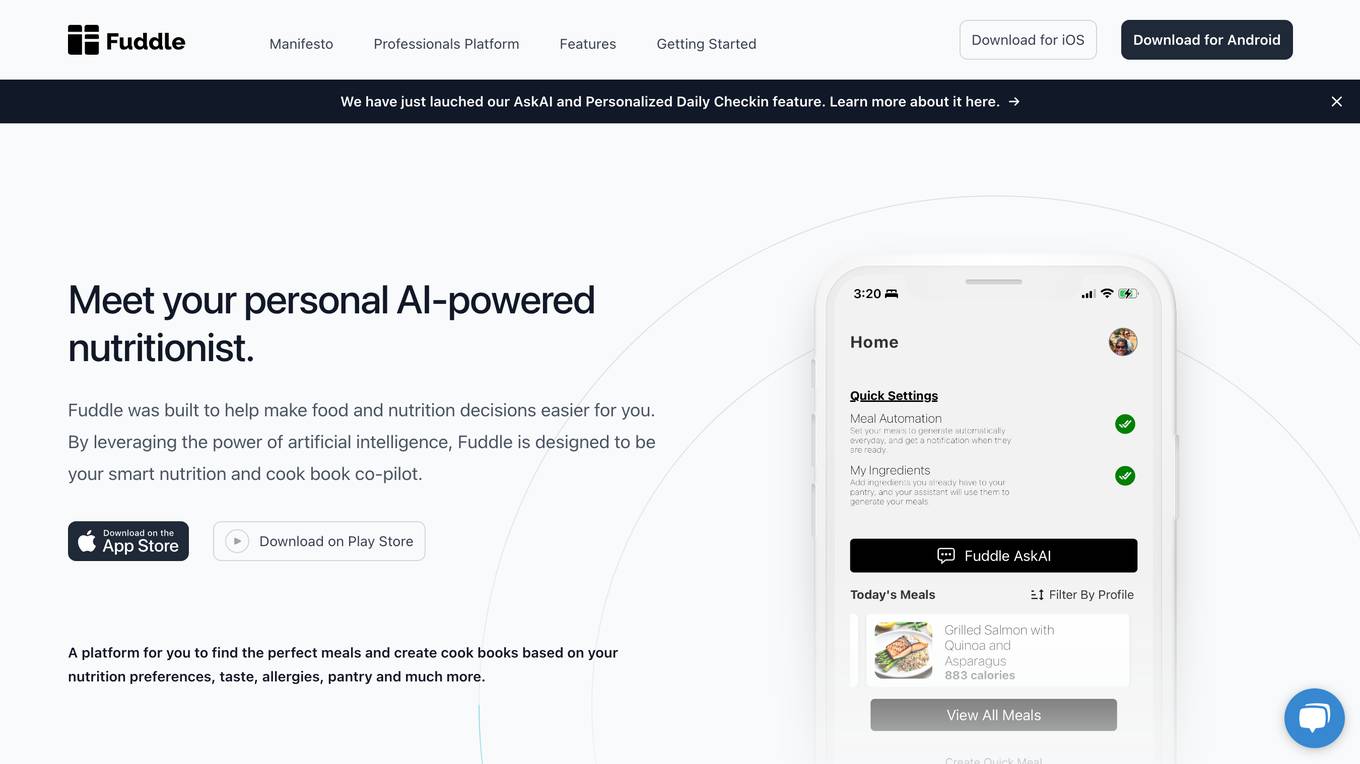
Fuddle
Fuddle is an AGI-powered nutrition platform designed for humanity. It provides professionals with a comprehensive set of tools to help them create personalized nutrition plans for their clients. Fuddle's features include a food database, recipe builder, meal planner, and progress tracker. The platform also offers a variety of resources and support to help professionals stay up-to-date on the latest nutrition science.
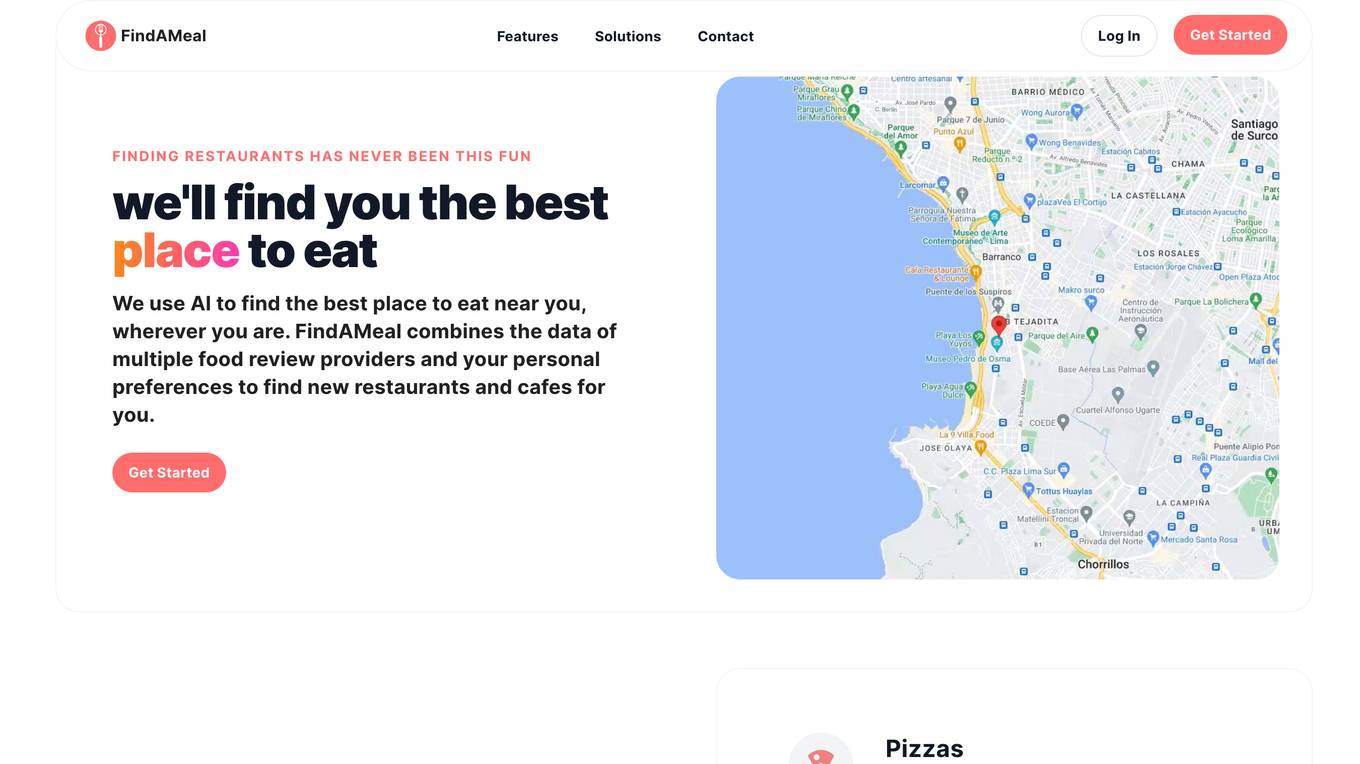
FindAMeal
FindAMeal is an AI-powered search engine that helps users discover nearby restaurants based on their personal preferences. By combining data from various food review providers and utilizing AI technology, FindAMeal simplifies the process of finding the perfect dining spot. Users can make any type of query, from finding a date spot to selecting a fancy restaurant for special occasions. The platform aggregates information from sources like Google, Yelp, and Foursquare to offer tailored recommendations, making it easy for users to explore new dining experiences.

Wanderboat AI
Wanderboat AI is an intelligent trip planner that helps users find restaurants, attractions, and events in minutes. By leveraging artificial intelligence, the application provides personalized recommendations based on user preferences and interests. Users can easily plan their trips, discover new places, and create memorable experiences with Wanderboat AI.
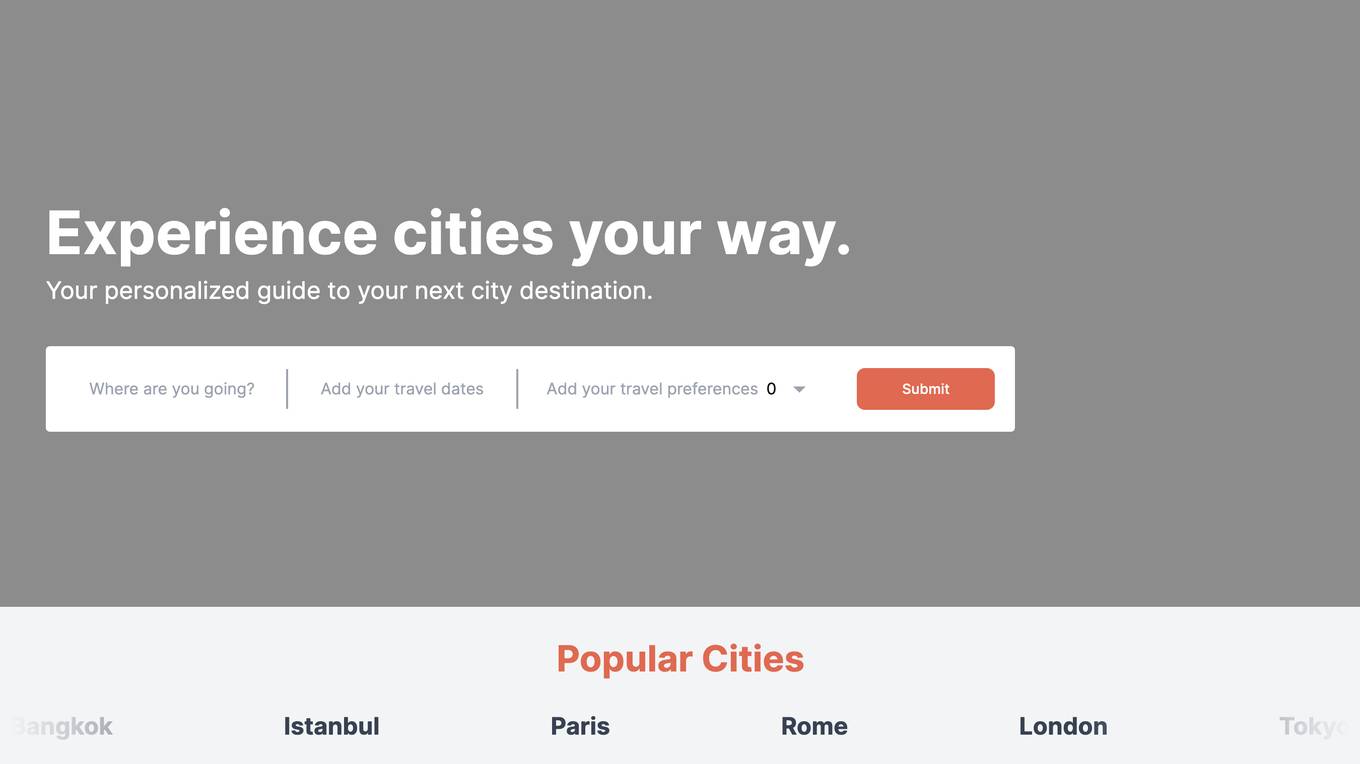
Travelicious
Travelicious is a user-friendly app that transforms how you experience cities. By integrating AI with your travel preferences, Travelicious creates personalized itineraries that promise authentic adventures, hidden gems, and the best culinary delights. Simply enter your destination, dates, budget, and interests, and Travelicious will recommend a personalized journey just for you.
0 - Open Source AI Tools
20 - OpenAI Gpts
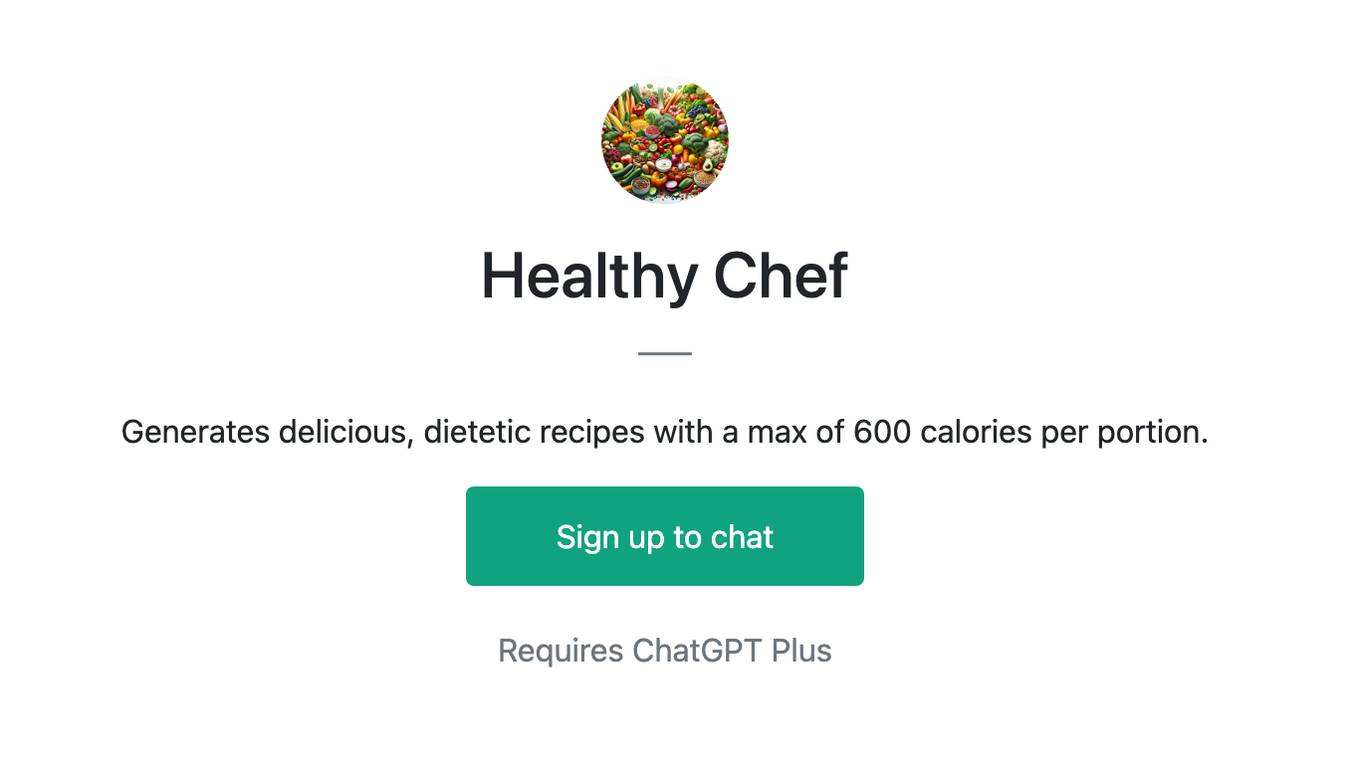
Healthy Chef
Generates delicious, dietetic recipes with a max of 600 calories per portion.

Meal Planner + Home Delivery
Find your next favorite recipe and instantly add fresh, affordable ingredients to your Walmart cart. Enjoy the convenience of home delivery or pickup. Delicious, healthy, and budget-friendly.
Wellness Wizard
A comprehensive guide on male wellness, including exercise, diet, and lifestyle tips.

Australia Smart Chef
Enthusiastic, supportive recipe guide for health-conscious budgets. Suggesting recipe from Wooloworths and Coles Special products.
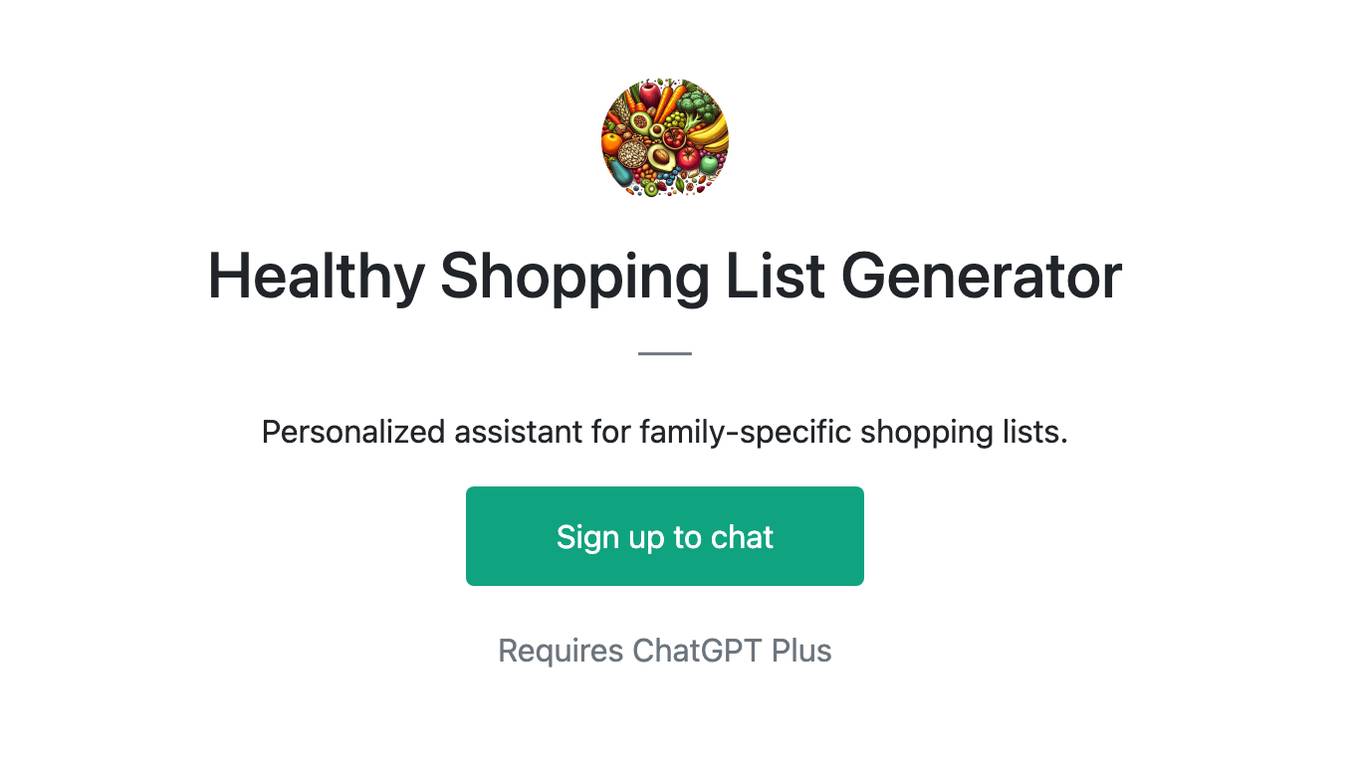
Healthy Shopping List Generator
Personalized assistant for family-specific shopping lists.
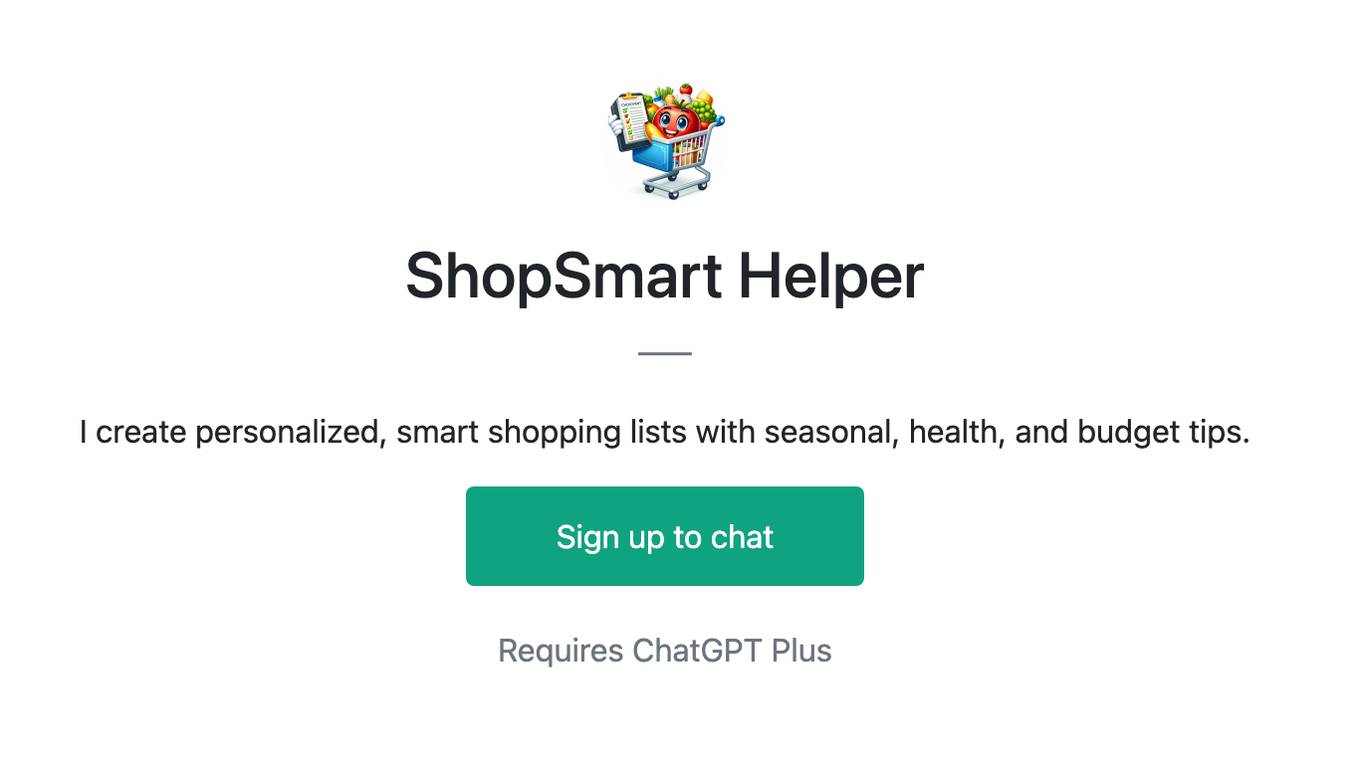
ShopSmart Helper
I create personalized, smart shopping lists with seasonal, health, and budget tips.

Calorie Count & Cut Cost: Food Data
Apples vs. Oranges? Optimize your low-calorie diet. Compare food items. Get tailored advice on satiating, nutritious, cost-effective food choices based on 240 items.

